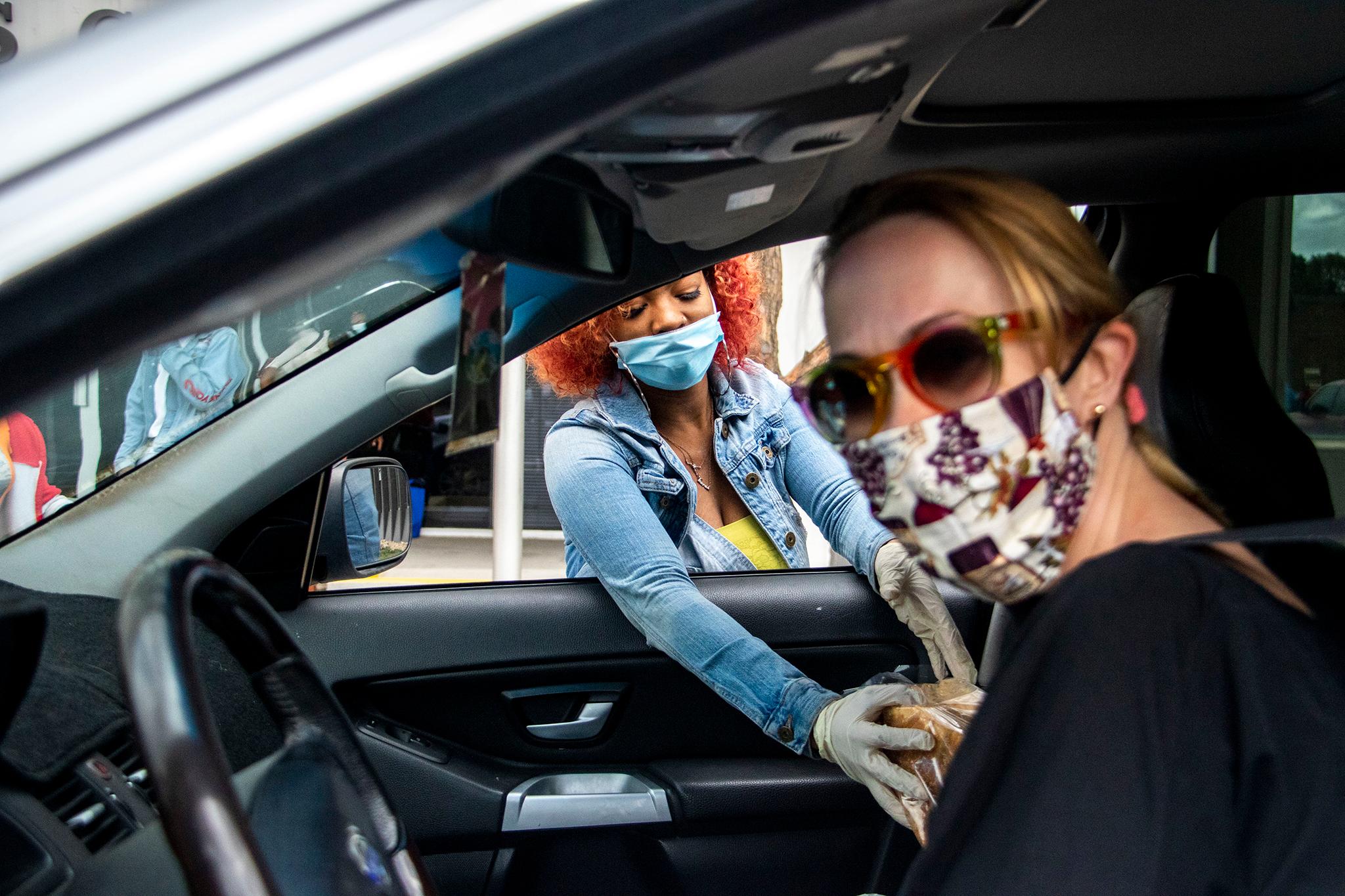Before the new coronavirus outbreak, feeding the hungry was a small part of what Struggle of Love Foundation did in Montbello.
In recent weeks, the organization that mentors young people and addresses violence in its Denver community has focused on distributing free food, responding to growing need in Montbello and beyond as stay-at-home and social distancing public health orders ravage the economy.
Executive Director LaKeshia Hodge said Struggle of Love has for about two years had a small pantry to serve anyone who dropped by during business hours needing food. It typically served fewer than 200 people, most of them seniors, a week. In mid-March, when city officials began restricting the operations of restaurants and other businesses and banning large gatherings, the numbers began to increase quickly. Then came stay-at-home orders. Now, Hodge said, Struggle of Love is serving 2,500 people every week. The new visitors include families and people of all ages.
"It was a huge spike," she said. "People started panicking and coming to get food."
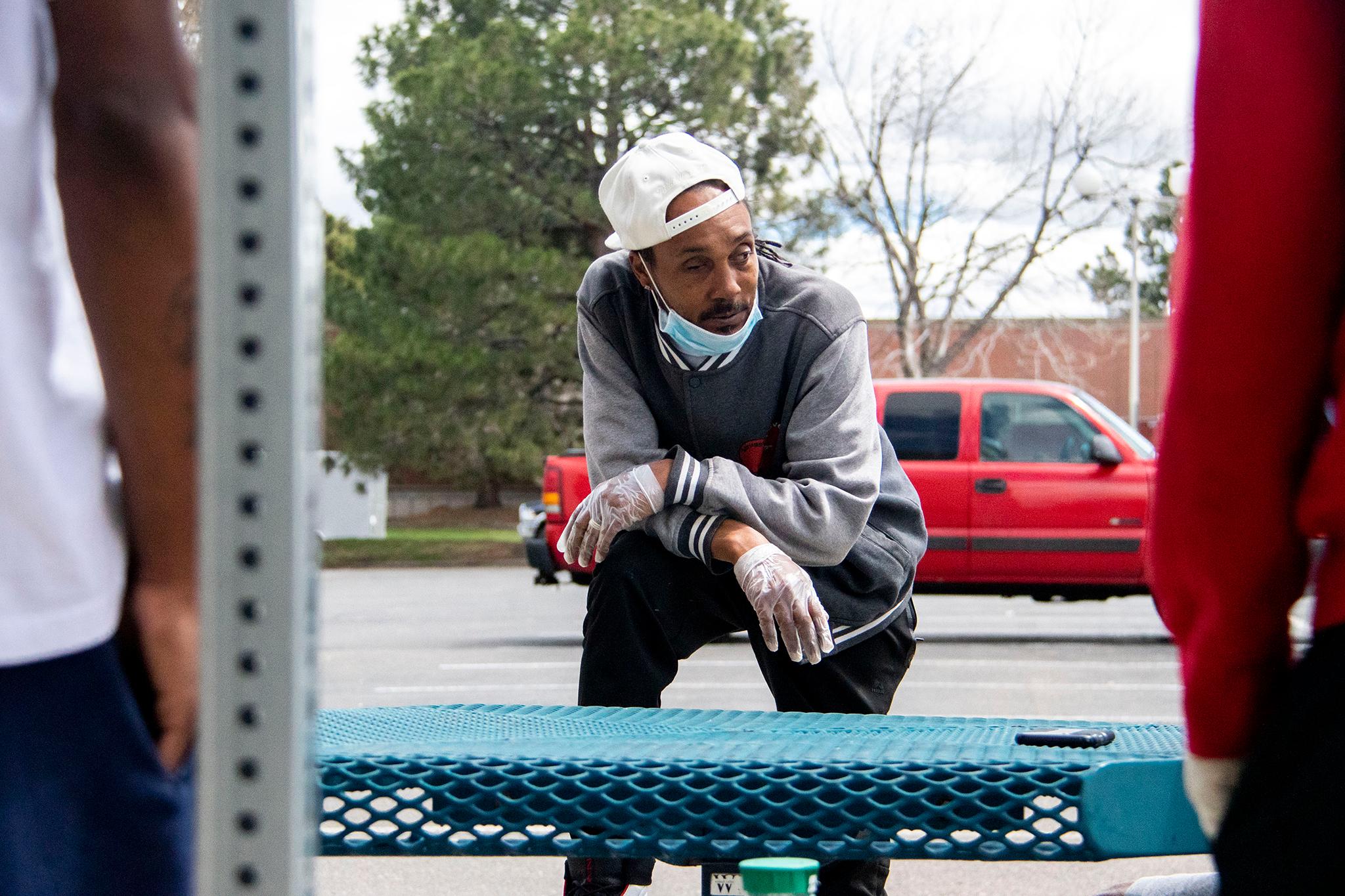
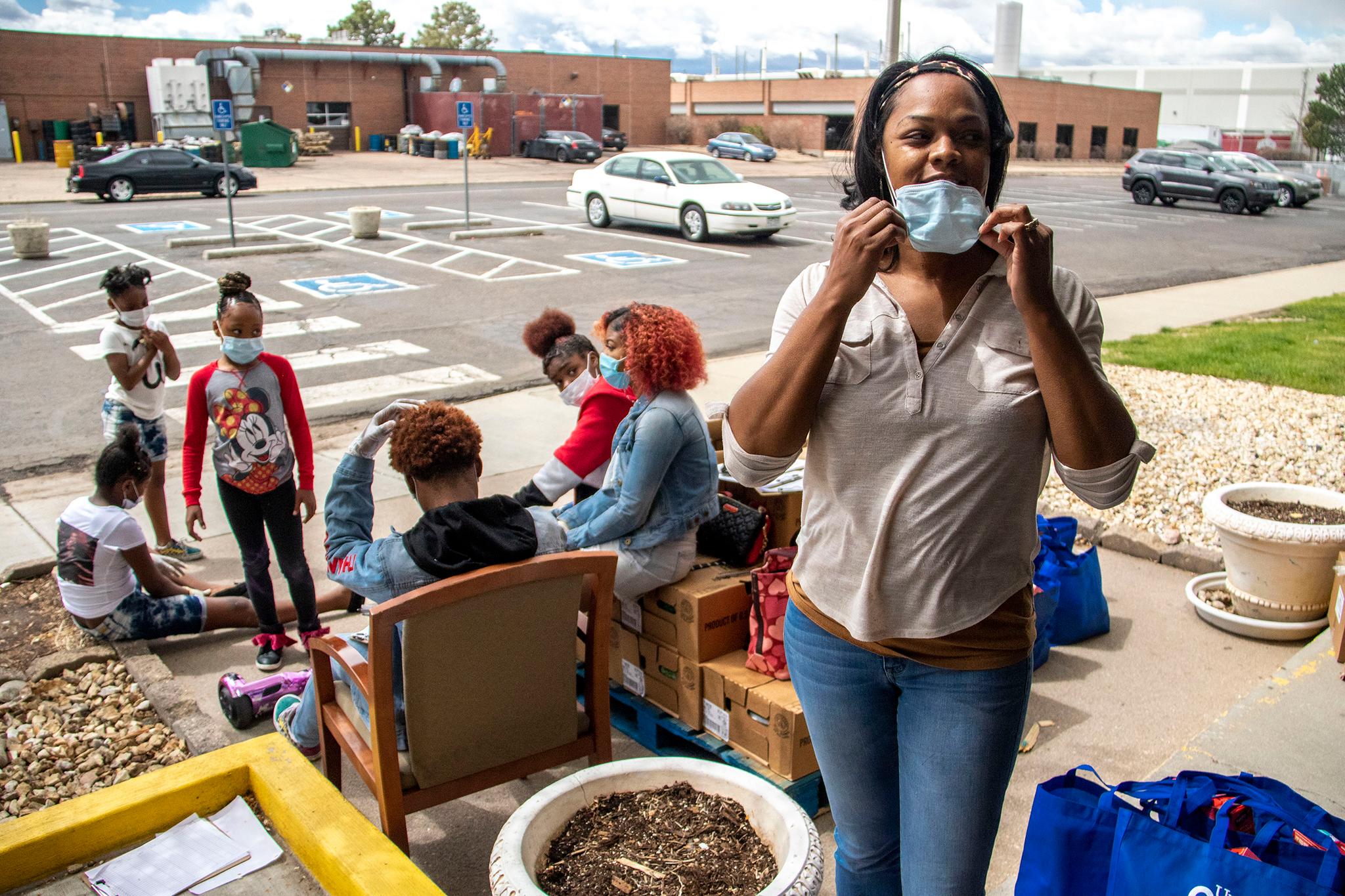
Erin Pulling, president and CEO of the Food Bank of the Rockies, said the increase at Struggle of Love stands out, but that all the pantries her organization supplies have seen demand increase. To more efficiently meet the growing need, Pulling's food bank has stopped delivering to smaller pantries and is relying on a network of pantries that can handle high volumes of food to distribute to individuals and to smaller pantries.
Struggle of Love might have been one of those smaller pantries. But it responded quickly to the need and became part of the Food Bank of the Rockies' emergency network. Hodge and her husband made trips to the grocery store to try to keep up with the growing demand themselves the first week. Now they get Food Bank of the Rockies deliveries three times a week.
Struggle of Love is one of the pantries where the Montbello Walks community program has been picking up food to distribute to the elderly. For the past three years, Pam Jiner has brought food every Tuesday to 60 to 70 seniors who take part in her Montbello Walks exercise and diet program. Since COVID-19 arrived in Denver, that has grown to nearly 400 seniors every four days, Jiner said.
According to city figures, of the 106 food pantries in Denver before the pandemic struck, 44 have closed, hit by a lack of volunteers, trouble accessing supplies and other problems. Hodge said partnerships with other community groups and with organizations such as the Food Bank of the Rockies have helped her not just stay open, but grow.
She said people in need as well as people who want to help are learning about the pantry from word of mouth and internet searches.
"There are so many people now that are reaching out to us," Hodge said. "It's turned into a pretty big operation."
Young people in Struggle of Love's mentor program are helping distribute food. The organization has adopted the drive-by model pantries are using to ensure social distancing, with volunteers putting pre-packed bags into people's cars so no one has to crowd inside to get food. Other volunteers have helped Struggle of Love start a delivery service to get food to seniors and other people who have been advised to stay home as much as possible to avoid the worst effects of COVID-19, the disease caused by the coronavirus. Hodge said delivery orders come from Thornton and Westminster as well as all over Denver.
Hodge and her husband, Struggle of Love founder and co-executive director Joel Hodge, have had to pause their foundation's other programs to concentrate on the pantry, which is open Monday to Friday from 11 a.m. to 2 p.m. at 12000 East 47th Ave.
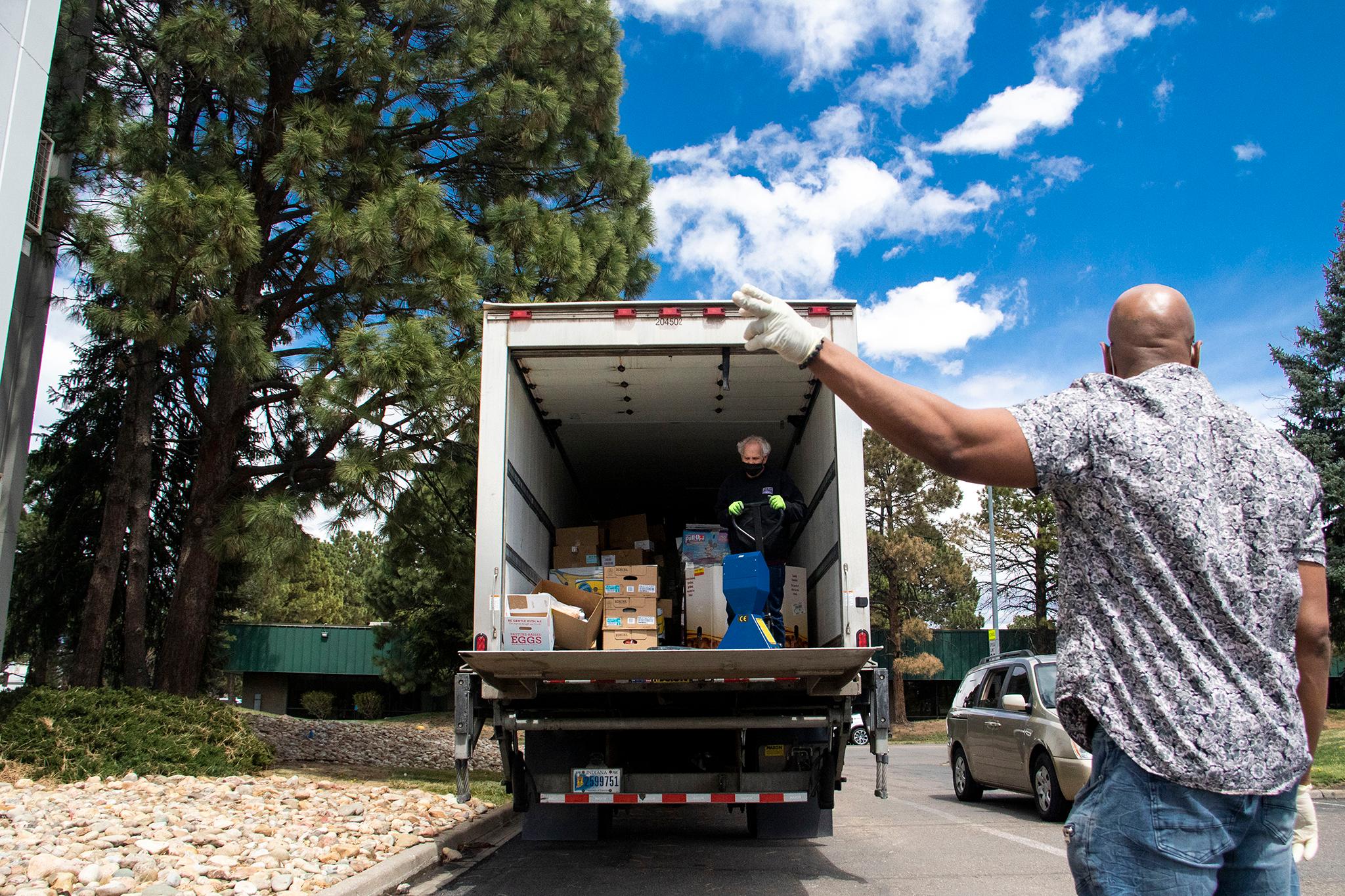
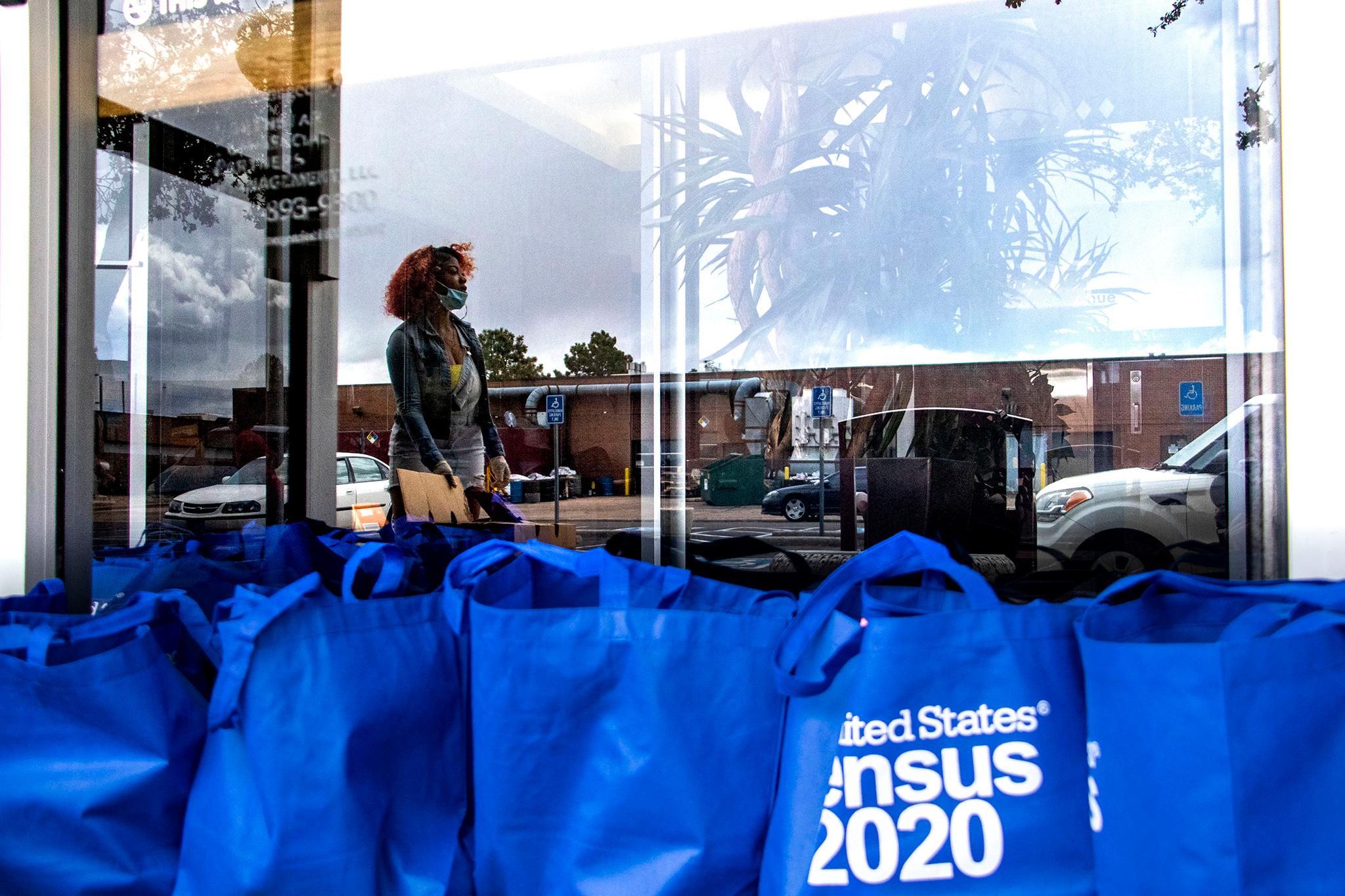
"When COVID-19 hit, they went into overdrive," District 11 City Councilwoman Stacie Gilmore said. "If someone is in need, if they see a way to help folks, they're going to step up."
Gilmore, who lives in Montbello, expects the need to continue to grow and is concerned about how Struggle of Love and other groups will keep up.
"We are going to have to figure out how we sustain it," she said.
Gilmore said she would like to see a broader conversation start about addressing inequities in food, health, technology and others that the coronavirus has made evident. Minority communities such as Montbello have been hard hit by the disease and by its economic impact.
"We can't go back to normal," Gilmore said. Normal "honestly wasn't working for everybody."

